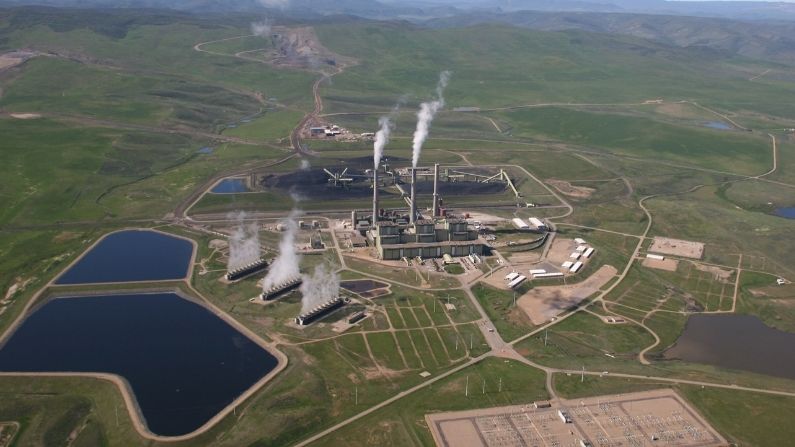This story comes to KHOL through the Rocky Mountain Community Radio coalition.
Last November, Colorado air quality regulators said they’d order three coal-fired power plants to close a year earlier than planned to reduce haze and greenhouse gas emissions. Environmental groups rejoiced at the prospect. A month later, though, the regulators abruptly abandoned the proposal.
Now, Craig Unit 3 in Moffat County, the Rawhide plant in Larimer County, and the Ray Nixon plant in El Paso County will remain open until 2030, instead of closing by the end of 2028.
“I think it really was a big missed opportunity to take a positive step forward,” said Michael Hiatt, a staff attorney for the nonprofit Earthjustice.
The three utility companies that own the plants, TriState Generation and Transmission Association, Platte River Power Authority, and Colorado Springs Utilities, had announced earlier this year that they would voluntarily retire them by 2030. They cited fundamental shifts in the energy industry and state requirements for greenhouse gas reductions–which call for utilities to cut their emissions by 80 percent over the next 10 years.
At the same time, state regulators were working on plans to reduce regional haze, which obscures views around national parks and wilderness areas.
Two environmental groups, the National Parks Conservation Association and the Sierra Club, intervened in the haze rulemaking and suggested an alternative that would close five of Colorado’s coal-fired power plants by the end of 2028. This alternative, the groups said, offered many benefits.
“Accelerating these retirement deadlines would result in better scenic views in Colorado’s national parks and wilderness areas; it would result in public health benefits by cleaning up the air; it would result in additional and quicker greenhouse gas reductions; and it would also save Coloradans millions of dollars,” Hiatt said.
The Colorado Air Quality Control Commission agreed and proposed moving the closure dates up for three of the plants by one year. But the utilities pushed back. They declined to comment for this story, but in a statement filed with the commission, they contended that the commission lacked the authority to force them to shut down the plants more quickly. The utilities also stated that if they’d known that their voluntary closure dates were going to be moved up, they might not have offered them in the first place.
The Colorado Energy Office also chimed in, raising concerns about power supply reliability and economic impacts.
When the air quality commission met in December, they decided to walk back the early closure proposal, saying that they’d had incomplete information. The commissioners were under intense pressure from the utility companies, according to Stephanie Kodish, senior director for clean air and climate with the National Parks Conservation Association.
“In the course of the proceedings, industry made very clear that they were opposed to our alternative,” Kodish said. “They didn’t have any substantive reason or justification that they specified. They just preferred their own voluntary measures as opposed to ones that were a bit more aggressive and would have achieved far more substantial benefits.”
Elise Jones is a member of the Air Quality Control Commission. She disagreed with the decision to drop the early closure requirements, and she said the commission does have the authority to take such measures.
“The commission has pretty broad and clear statutory authority to take action to improve and protect Colorado’s air quality,” she said. “And typically when we do that we don’t ask polluters how they’d like to do it and when they would like to stop polluting. We do what is necessary to protect air quality as long it’s technically feasible and cost-effective.”
Despite the objections of the utilities, moving the ending date up by one year wouldn’t have impeded the closure planning that they had to do anyway, Hiatt said. He also noted that Ron Binz, a former Colorado Public Utilities Commission chairman, said as much during the November hearing on the proposal.
“He testified that this is not an impossible task. It’s merely a nudge. Not a shove toward a clean energy transition,” Hiatt said. “The fact that it’s still eight years out provides ample time to ensure that we have a smooth transition.”
In the meantime, it’s clear that coal plant closures will continue as market forces and consumer demand push utilities toward renewable energy. For example, Xcel Energy owns two coal-fired plants that the air quality control commission also planned to consider early this year for accelerated closure. Instead, the utility announced on Jan. 4 that it plans to move up the closure dates of those northwest Colorado plants on its own. Hayden Unit 1 will now be shuttered in 2028, two years ahead of schedule, and Hayden Unit 2 will close down in 2027, nine years earlier than planned.















